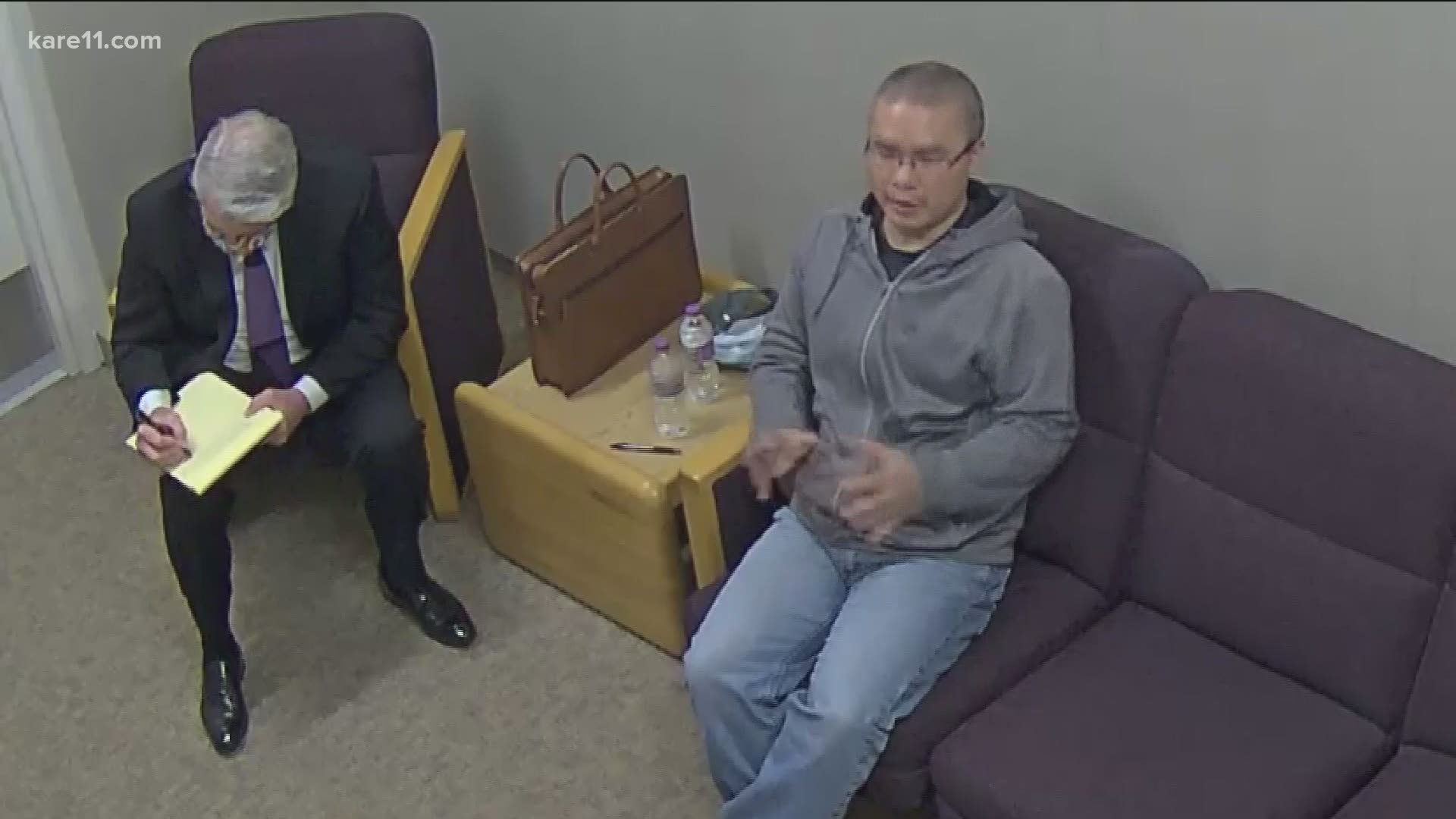MINNEAPOLIS — The attorney for a former Minneapolis police officer charged in the death of George Floyd is asking for those charges to be dropped, alleging that prosecutors leaked news of a proposed plea deal by co-defendant Derek Chauvin to the New York Times.
In a motion of dismissal filed in Hennepin County District Court, Robert Paule, defense counsel for Tou Thao, requests a hearing during which Minnesota Attorney General Keith Ellison and prosecuting attorneys Matthew Frank and Neal Katyal are required to be present and face "sanctions against the State for its role – directly or indirectly – in the leaking of highly prejudicial information related to potential plea agreements of codefendants."
Thao's defense team is asking Judge Peter Cahill to schedule the hearing within the next week, before jury selection is scheduled to begin in Chauvin's trial March 8.
Paule alleges that a New York Times article published February 10 featured leaked information detailing a preliminary plea agreement between the state and co-defendant Derek Chauvin, the former Minneapolis police officer captured on videotape kneeling on Floyd's neck for more than eight minutes. In the alleged deal, the Times reported Chauvin would have pleaded guilty to third degree murder in exchange for a 10-year prison sentence.
“But at the last minute," the Times printed, "according to new details laid out by three law enforcement officials, the deal fell apart after William P. Barr, the attorney general at the time, rejected the arrangement."
Chauvin is charged with second-degree murder and manslaughter in Floyd's death.
In his motion, Paule and Thao argue that the information leaked is highly prejudicial, and could only have come from the prosecution team or someone associated with it.
"There are a finite number of people that would have had direct knowledge of the alleged plea agreement," Paule wrote. "The newspaper articles show that Mr. Chauvin’s team was not the source, nor were the federal prosecutors. Using deductive reasoning, the leak had to have come from the State."
"It is impossible to overstate the magnitude of this misconduct or its prejudicial effect on the defendants’ constitutional due process rights of a fair trial," Paule continues. "If this leak would have happened during trial, the Court would be required to declare a mistrial and dismiss the charges with prejudice."
Along with a dismissal of aiding and abetting second degree murder charges, Thao's defense team is seeking the following:
- An order barring any person(s) who leaked information of Mr. Chauvin’s plea deal to the press from participating in any of the trials stemming from the death of George Floyd. This order would also bar any person(s) who knew of the source of the leak and failed to mitigate it, ratified it, or ordered it.
- An order removing of all out-of-state/pro hac vice attorneys from the case of State v. Thao.
- An order removing all “special attorney generals” for the case of State v. Thao.
- A gag order preventing the State, prosecuting attorneys, staff, witnesses, and all other employees in its offices from speaking to the public or press until the end of trial in State v. Thao.
- An order requiring the State to pay for the cost and fees associated with filing this motion.
- An order requiring the State to pay for the cost and fees of any further delay of trial stemming from these articles or further publication on the plea deal.
- An order preemptively removing all potential jurors from sitting on the jury if they acknowledge in voir dire they saw, read, or have knowledge of the cited articles.
- An order increasing the amount of preemptive strikes each defense team has to counter this prejudicial effect of the misconduct.
Later Tuesday, attorney Thomas Plunkett filed a similar motion to dismiss for his client, former Minneapolis police officer J. Alexander Kueng, also citing the New York Times report on the failed plea deal. Then on Wednesday Earl Gray, attorney for former officer Thomas Lane, filed a motion asking Judge Peter Cahill to allow Lane to join the motions filed one day earlier by Thao and Kueng.
Kueng, Thao and Lane are each charged with aiding and abetting second-degree murder and aiding and abetting second-degree manslaughter.
In a statement to KARE 11, Attorney General Keith Ellison called Thao's motion "one convoluted conspiracy theory," noting that the Minnesota Attorney General's Office had not even taken over prosecution in the case at the time of the reported failed plea deal.
"[The motion] fantasizes that even before we took over the case we somehow knew what then-President Trump’s then-attorney general was thinking," Ellison said. "It's completely false and an outlandish attempt to disparage the prosecution for seeking justice in the death of George Floyd. Had we been contacted prior to its filing, we could have debunked this bizarre theory from the outset and avoided this waste of the court’s time.”
Michael Bryant, a legal expert and managing partner at Bradshaw and Bryant who is not involved in any of the cases, said motions like this are common to lay groundwork for future appeals.
“We’ve been seeing a motion about every week, for the last month and a half. So, it’s not surprising," Bryant said.
He also said he doesn’t buy the defense’s argument that the leak to the Times might taint a jury.
“Not compared to anything else, compared to the other stories or people seeing riots and seeing the response," Bryant said. "There’s so many other things that could prejudice the jury beyond this.”

